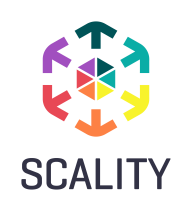


Dell ECS and Scality ARTESCA compete in the object storage market. Dell ECS has the upper hand in compatibility with legacy systems and strong enterprise support, while Scality ARTESCA is favored for its modern architecture and innovation.
Features: Dell ECS provides robust legacy system integration, enterprise-grade support, and strong security compliance. Scality ARTESCA offers agile deployment, scalability for cloud-native applications, and advanced modernization capabilities.
Ease of Deployment and Customer Service: Scality ARTESCA features a container-based deployment model, easing installation and scaling, complemented by responsive customer support. Dell ECS involves traditional setup processes but benefits from comprehensive support services.
Pricing and ROI: Dell ECS generally incurs higher initial setup costs but offers a favorable ROI through efficient integration with existing infrastructure. Scality ARTESCA, with lower upfront costs, appeals to businesses seeking innovative solutions, offering compelling long-term value due to its advanced capabilities.


FlashBlade is the industry’s most advanced scale-out storage for unstructured data, powered by a modern, massively parallel architecture to consolidate complex data silos (like backup appliances and data lakes) and accelerate tomorrow’s discoveries and insights.
Enterprise-ready. Future-proof. Data-first.
Dell EMC Elastic Cloud Storage (ECS) is a file and object storage solution from Dell EMC. ECS has been created to support both traditional and next-generation ecosystems equally. ECS boasts unrivaled economics, manageability, resilience, and scalability to satisfy the demands of today's next-gen, robust business enterprise ecosystems. ECS can easily be deployed in a software-defined model or as a turn-key appliance. ECS is software-defined and multi-layered for unlimited scalability. Every layer is abstracted and scalable with no single point of failure.
Everything is done within the software, which is containerized, using docker.
ECS is currently deployed using basic commodity hardware, which can easily be federated across as many as eight different locations and managed as a single resource. Additionally, ECS can also protect data at the site level, locally, disk, node, and rack levels. The federation enables a single global namespace with everywhere access to content. Applications can quickly rewrite in an active/active or everywhere active manner.
ECS is also able to be used as secondary storage or archival storage. This will free up valuable primary storage of data that is stale, redundant, or used infrequently, and the data will remain easily accessible. ECS uses policy-based tiering such as Data Domain, Cloud tiering, Isilon using cloud polls, and Geodrive, which give Windows systems direct access to ECS. Windows users can still use server message block (SMB) while leveraging the more expansive ECS storage.
ECS is enterprise-grade and offers valuable features such as retention, multi-tenancy, metering, monitoring, quotas, and more. ECS builds in robust security from the ground up and encrypts data. ECS is compliant with STIG guidelines and adheres to SEC rule 17A-4F.
ECS is an enterprise-ready solution that allows organizations to easily simplify object storage management and visualize information in intuitive new ways, and empowers your business to do even more with data. With ECS, enterprise organizations can deliver cloud-scale economics in-house that will lower total cost of ownership (TCO) and scale, creating greater levels of productivity and profitability.
Reviews from Real Users
One user, who is a deputy director at a tech service company, says ECS offers “good performance, reliability, and technical support”.
Dell EMC ECS is “a stable solution which is easy to scale, install and manage”, relates another user, who is a senior buyer at a tech service company.
"What I like best about this product is that it is a complete solution, both hardware, and software, by the same vendor," summarizes a system engineer at a tech services company.
Scality ARTESCA is a lightweight, cloud-native object storage solution designed to support modern data-driven applications. It offers a seamless experience with robust data management capabilities.
With a focus on simplicity and scalability, Scality ARTESCA provides an easy-to-deploy architecture for Kubernetes environments. It ensures data durability and accessibility, catering to diverse business needs by combining high performance with cost efficiency. Its modern design supports a wide range of use cases such as artificial intelligence, IoT, and hybrid cloud deployments, making it a versatile choice for organizations looking to streamline their data storage strategies.
What are the key features of Scality ARTESCA?Industries such as finance, healthcare, and media utilize Scality ARTESCA to store and manage large volumes of sensitive data, ensuring secure and efficient data handling practices. Its scalability and adaptability make it suitable for sectors that demand quick data processing and retrieval.
We monitor all File and Object Storage reviews to prevent fraudulent reviews and keep review quality high. We do not post reviews by company employees or direct competitors. We validate each review for authenticity via cross-reference with LinkedIn, and personal follow-up with the reviewer when necessary.